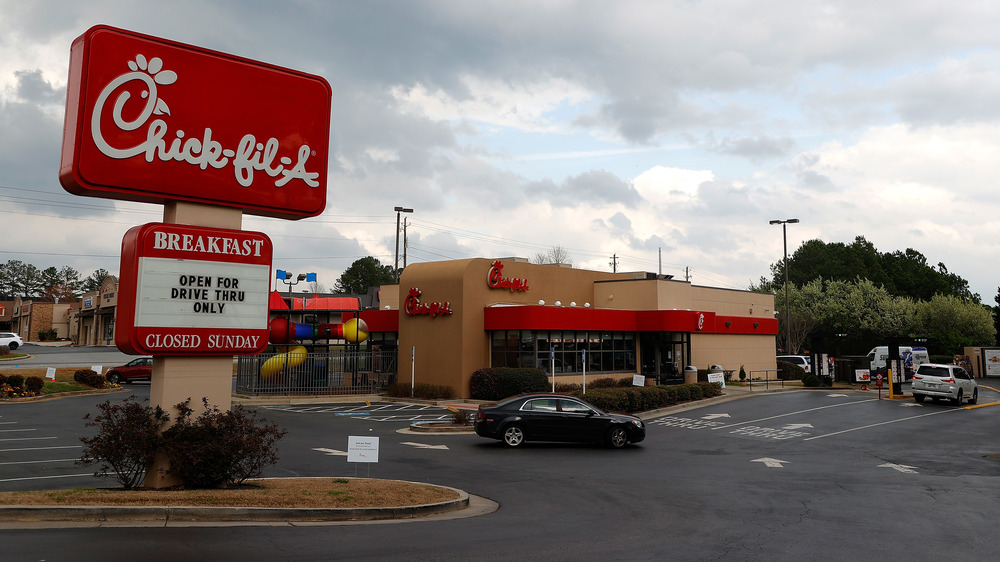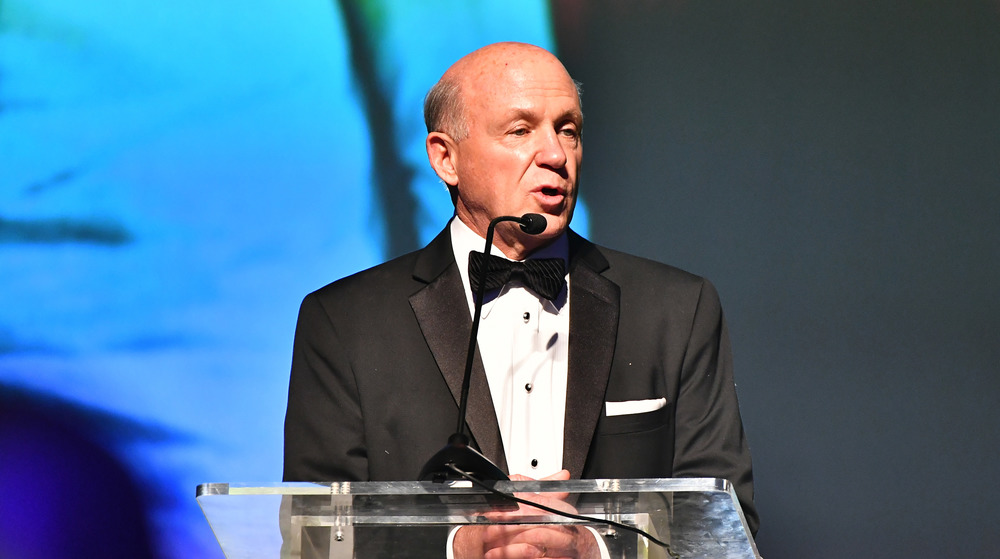Chick-Fil-A Will Always Be A Privately Held Company. Here's Why
Chick-fil-A founder S. Truett Cathy opened his first Chick-fil-A location in an Atlanta mall in 1967. He ran the business for the next 46 years, overseeing its expansion into 1,800 locations across 39 states. Even well into his 80s, he remained chairman emeritus of the chain, and still delighted in going into work every day. "Why would I retire from something I enjoy doing? I can hardly wait to get here," Cathy stated in 2007, via USA Today.
Although he ceded some management responsibilities to his son in his later years, he remained actively involved in the company until his death at age 93. After Truett Cathy died in 2014, control of the business went to his son, Dan T. Cathy. Chick-fil-A has stayed in the family, and that's just how Cathy wanted it. Before his death, he even had his children sign a contract swearing that they would never take the fast food company public, according to Business Insider.
Chik-fil-A wants to remain true to its values
For one thing, S. Truett Cathy feared going public might force them to compromise their core values as a Christian-run company. Cathy firmly believed in remaining closed on Sundays, and their distinctly Christian mission statement might be forced to undergo some revisions if the company were to become publicly owned. Chick-fil-A's stated corporate purpose, via their website, is: "To glorify God by being a faithful steward of all that is entrusted to us and to have a positive influence on all who come into contact with Chick-fil-A."
James L. S. Collins, one of Cathy's business partners, also told the New York Times "that if anyone lost money he'd feel obligated to make it up. That's one reason we're not public. He'd feel obligated to return losses to shareholders who lost money." Cathy also admitted to the Times, "I'd be resentful if shareholders who don't know the business tried to tell me what to do."
Although the younger Cathy is committed to expanding the family business, so far he also seems committed to ensuring the company stays in his family's hands. One can only assume that when the time comes, Dan T. Cathy will hand the company down to his children, just as his father wanted.

